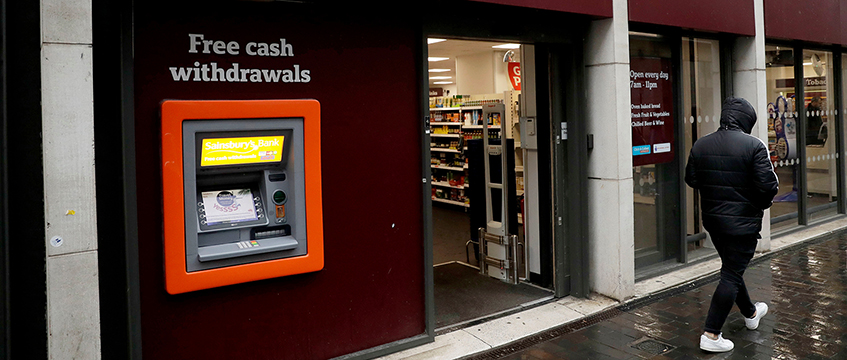Supreme Court hears supermarket ATM rating appeal
A £500m battle over whether ATMs at supermarket sites should be separately assessed for business rates today reached the Supreme Court.
In 2018, supermarket chains including Tesco and Sainsbury’s won their legal battle at the Court of Appeal over how cash machines in their stores are rated. The Court of Appeal ruled that ATMs located both inside and outside stores should not be assessed for additional business rates.
Previously, the Upper Tribunal (Lands Chamber) had made a distinction between ATMs inside a building and outside, finding that while the former should not be assessed for business rates, the latter should.
A £500m battle over whether ATMs at supermarket sites should be separately assessed for business rates today reached the Supreme Court.
In 2018, supermarket chains including Tesco and Sainsbury’s won their legal battle at the Court of Appeal over how cash machines in their stores are rated. The Court of Appeal ruled that ATMs located both inside and outside stores should not be assessed for additional business rates.
Previously, the Upper Tribunal (Lands Chamber) had made a distinction between ATMs inside a building and outside, finding that while the former should not be assessed for business rates, the latter should.
Now the Valuation Office Agency (VOA) has taken the matter to the highest court, where Lord Reed, Lord Kerr, Lord Carnwath, Lady Black and Lord Kitchin are being asked to decide the key question: who is the rateable occupier of the site of a cash machine whose operator is a different company from the occupier of the premises in which it is located?
Tim Morshead QC, representing the VOA, said that the Valuation Tribunal for England had initially found completely in the VOA’s favour, the Upper Tribunal had ruled partly in its favour, while the Court of Appeal had ruled completely against it – what he described as a “complete swing” during the legal process.
As a result, he said: “The view has been taken that we need a definitive answer. On our case, the law has taken a very serious wrong turn.”
He explained that modern-day ATMs essentially feature a “robot” inside performing the job that would, in previous years, have been done by a bank employee. Effectively, he said, “the robot is an employee of the bank”.
He added: “There is an occupation of land and rates are a tax on people occupying land. Unless that is recognised, we create a big problem in rating. This is a point of very great importance.”
ATM operator Cardtronics UK, as well as supermarket chains Tesco, Sainsbury’s and the Co-operative Group, are fighting to uphold the Court of Appeal decision.
Colliers International has estimated that there are tens of thousands of business rates appeals in the system waiting for an outcome relating to this issue and that, if the Court of Appeal decision is ultimately upheld by the Supreme Court, the supermarkets will be due refunds in the region of £500m.
John Webber, head of business rates at Colliers International, said: “Whoever succeeds in the Supreme Court and whatever decision the Justices arrive at, common sense and a pragmatic approach needs to be taken – which, in the world of business rates, seems to be in short supply.
“This case should not be a further reason for retail appeals to be delayed, particularly in the current climate with the headwinds that all businesses are facing.”
To send feedback, e-mail jess.harrold@egi.co.uk or tweet @estatesgazette
Photo: Matt Dunham/AP/REX/Shutterstock











